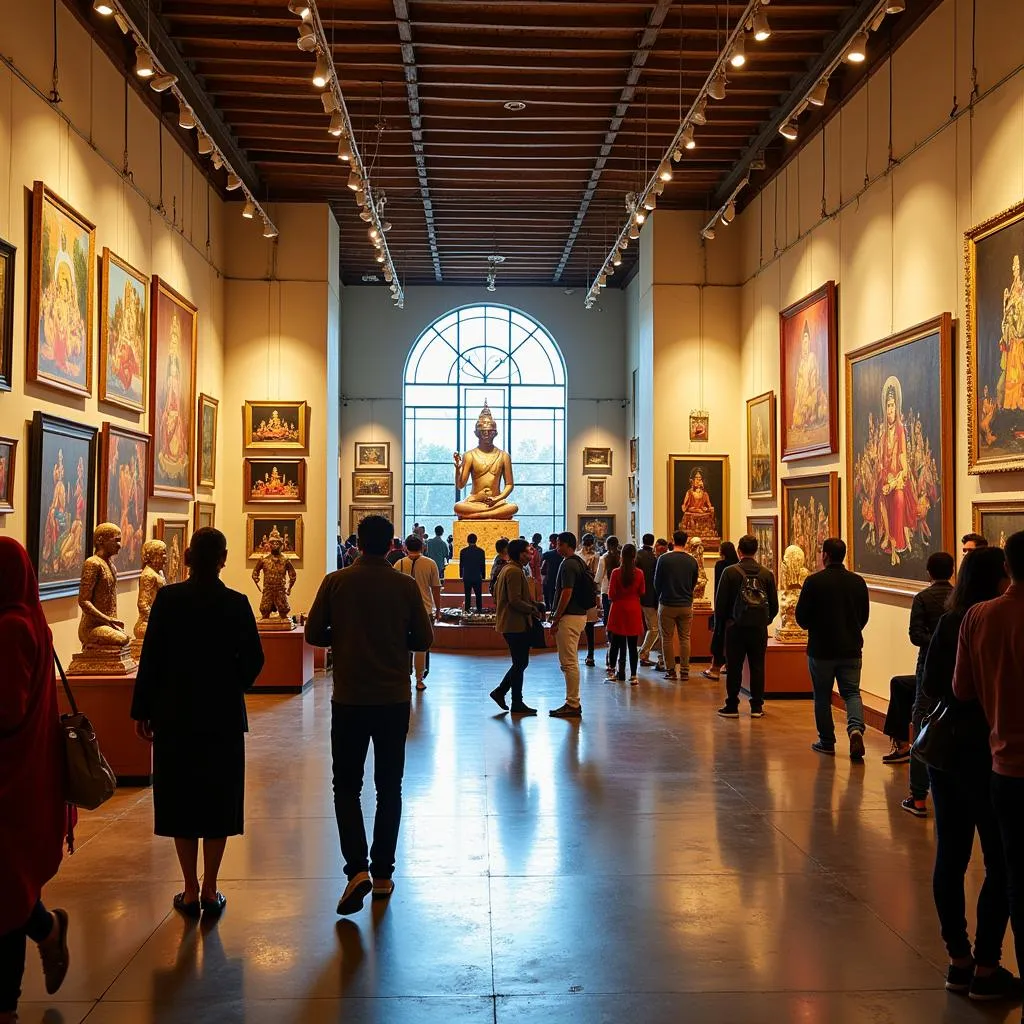African Union Headquarters China Spying Allegations: Separating Fact from Fiction
The gleaming African Union headquarters in Addis Ababa, Ethiopia, stands as a symbol of unity and progress for the continent. Yet, this beacon of hope was shrouded in controversy in 2018 when allegations surfaced that China, the building’s generous benefactor, had embedded surveillance technology within its structure. This revelation sparked a flurry of speculation, accusations, and denials, leaving many wondering about the truth behind the “African Union Headquarters China Spying” claims.
A Gift with Strings Attached? Examining the Evidence
 The African Union Headquarters in Addis Ababa, Ethiopia
The African Union Headquarters in Addis Ababa, Ethiopia
In 2012, China gifted the African Union a state-of-the-art headquarters complex worth an estimated $200 million. This act of generosity was widely applauded as a testament to the strengthening ties between China and Africa. However, the allegations of espionage, first reported by the French newspaper Le Monde, cast a shadow over this seemingly benevolent gesture. The newspaper claimed that data from the AU’s computer systems was being secretly transferred to servers in Beijing, raising concerns about China’s intentions and potential misuse of sensitive information.
While the Chinese government vehemently denied these allegations, calling them “ridiculous” and “groundless,” the incident sparked a broader debate about China’s growing influence in Africa. Some viewed the allegations as a sign of China’s willingness to leverage its economic clout for political gain, while others dismissed them as Western propaganda aimed at undermining Sino-African relations.
Cybersecurity Concerns or a Case of Misinformation?
 Delegates at an African Union Cybersecurity Summit
Delegates at an African Union Cybersecurity Summit
The “African Union headquarters China spying” narrative tapped into pre-existing anxieties about cybersecurity and data privacy in the digital age. It also highlighted the complex geopolitical landscape where narratives are often shaped by competing interests.
“It’s crucial to approach such claims with a critical eye,” says Dr. Abena Agyemang, a cybersecurity expert specializing in Sino-African relations. “While the potential for espionage exists in any international collaboration, it’s important to differentiate between substantiated evidence and politically motivated accusations.”
Following the allegations, the African Union took steps to enhance its cybersecurity protocols and reduce reliance on external actors for its IT infrastructure. This incident served as a wake-up call, prompting African nations to prioritize cybersecurity and data sovereignty in their dealings with global partners.
Moving Forward: Transparency and Trust in the Digital Age
The “African Union headquarters China spying” episode underscores the importance of transparency and trust in international relations, particularly in the realm of technology. While the veracity of the initial claims remains a subject of debate, the incident brought to the fore critical questions about data security, national sovereignty, and the responsibility of global powers in the digital age.



